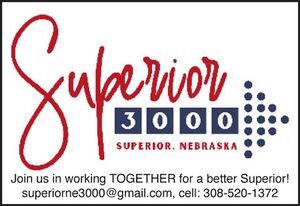DIY for COVID positive follow up
September 9, 2021
By Michele Bever,
SHDHD health director
As COVID case counts continue to rise in the South Heartland Health District, health department staff are finding ourselves stretched thin again. Fortunately, we have access to two external supports to help us follow up on new cases, including an automated survey system and a small team of contact tracers at Nebraska Department of Health and Human Services. We’re asking for your help, too.
In mid-August, South Heartland began using Nebraska’s automated contact tracing software system to assist with case and contact investigation within the four-county health district. This system helps us at times when the number of new cases goes beyond our staff’s capacity to investigate in a timely manner.
Using our in-house contact tracers, our goal is to reach people within 24 hours after we receive a positive result. We may need to leave messages if the person is not available. As cases increase, reaching people quickly becomes more and more difficult and the automated system helps us manage more of the cases within the desired time frame.
This is how the automated system works: When a positive lab test result is recorded, a text with an encrypted link to an online survey is automatically sent to the person who tested positive, provided they have a mobile phone number and are over age 18. The survey will be available for six hours and, if not completed, someone from the health department will call to conduct the interview by phone.
Of course, if someone has COVID-19 symptoms or tests positive for COVID-19 they should immediately isolate from others and tell their close contacts who may have been exposed. How do you isolate and how do you notify your close contacts? There are some step-by-step instructions to help you do your part to find and inform people you came in close contact with
while you were contagious with the virus that causes COVID-19. These helpful do-it-yourself (DIY) instructions about isolation and quarantine, how to determine which of your close contacts may have been exposed, and what to tell them, are available at netracing.org. The spread of COVID-19, especially now with the Delta variant, can be slowed using these prevention processes.
Be on the look-out for symptoms of COVID-19, which are the same for the Delta variant as for other COVID variants. This includes a wide range of flu-like symptoms, such as fever, cough, shortness of breath, fatigue, muscle aches, headache, sore throat and congestion or runny nose. New loss of taste and smell is another common and distinctive symptom with COVID infection. Some people may show very mild symptoms or no symptoms at all. People who are unvaccinated and people who are age 65 or older, or who have underlying health conditions such as diabetes, heart disease, lung disease, or immunosuppression, are most at risk for severe illness from COVID-19 infection.

If you have any underlying health conditions, please protect yourself with as many layers of prevention as you can. The more layers you are able to use, the better. In fact, we are asking everyone to be considerate of the health of their friends, neighbors, work colleagues, and other community members by using layers of prevention. These include staying home when you are ill or have had close contact with someone with COVID-19, practicing good hygiene like washing hands and not touching your face, wearing masks in public, disinfecting frequently touched surfaces, avoiding crowded spaces and confined indoor places and getting fully vaccinated.
If you think you have symptoms of COVID-19, self-isolate and get tested. And, then, if you test positive, first start the step-by-step DIY instructions to protect your close contact friends, family and colleagues by notifying them they may have been exposed and, second, answer the automated text to complete the survey or answer the phone call from the health department. These steps will help slow the spread of the Delta variant in our communities and protect people who are more at risk for severe illness.
Finally, and most importantly, please get vaccinated. The COVID-19 vaccine is safe and effective and being fully vaccinated is the best layer of prevention we have available to protect against severe COVID-19 illness.





Reader Comments(0)